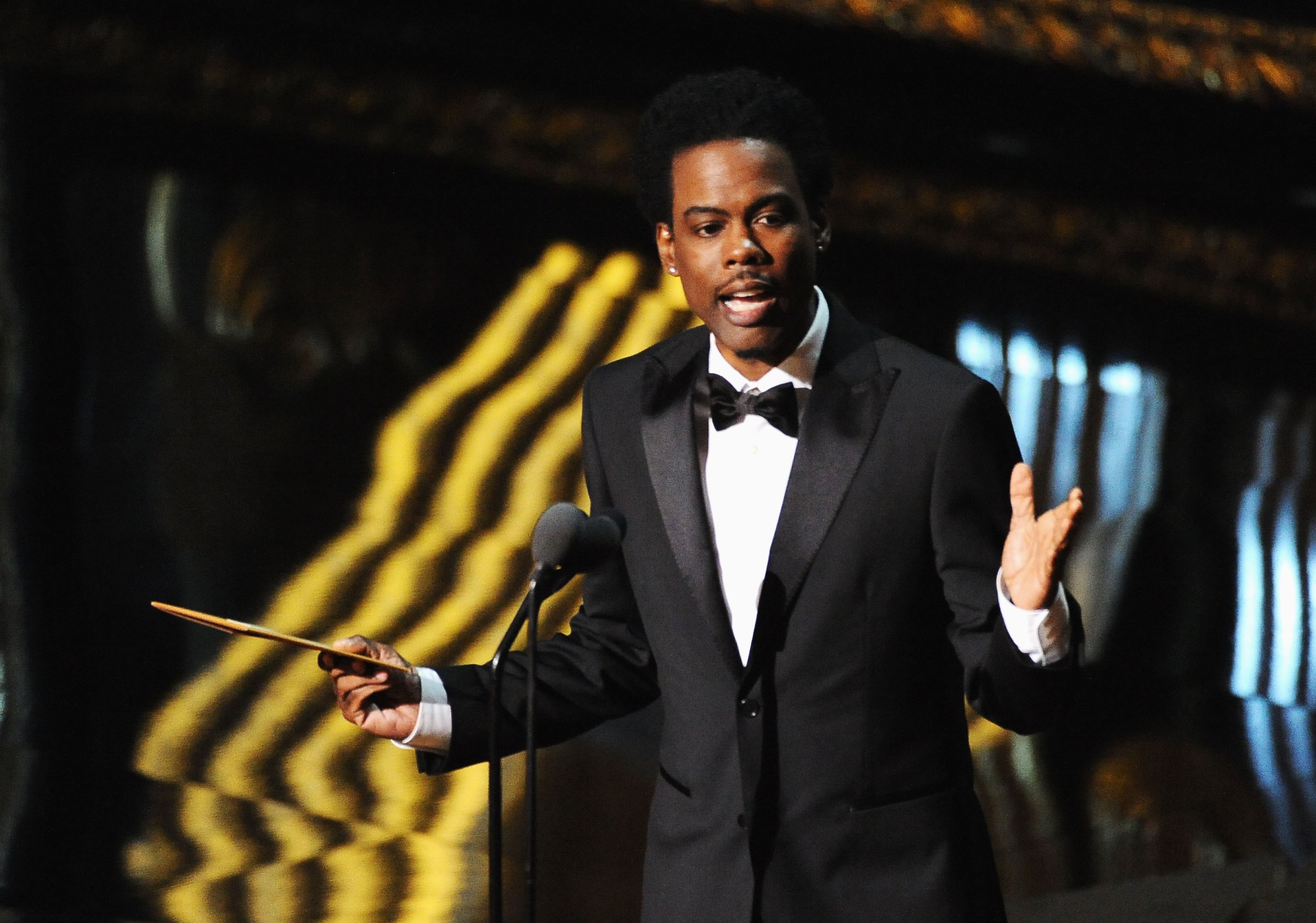
What a difference eleven years makes.
After the 2005 Oscars, host Chris Rock was excoriated for being, supposedly, too mean. Presenter Sean Penn chose to contradict Rock’s monologue jokes about Jude Law from the stage, calling Law “one of our finest actors.” Others, watching at home, simply criticized Rock’s jokes about everything from Nicole Kidman’s effusive reaction to Halle Berry’s 2002 Oscar win to the black moviemaking industry as tonally off. Until this year, Rock had never returned as host, succeeded by entertainers who generally defaulted either to overly stagy reverence for the art of the movies (Anne Hathaway, Billy Crystal, Hugh Jackman) or loopy jokiness with little bite (Ellen DeGeneres, Neil Patrick Harris). After a long absence, even Rock’s former critics might argue that his presence now feels utterly necessary.
Despite the “#OscarsSoWhite” controversy sparked by a second consecutive year of all-white acting nominees, Rock will not be the only person of color onstage. The producers have yet again reached out to a slate of presenters of nonwhite backgrounds, from Whoopi Goldberg to Dev Patel to Kerry Washington. This is an understandable gesture, and a well-meaning one. But it’s also transparently the same sort of short-term image cleansing as it was last year (when the all-white nominees list mingled with presenters of color including Viola Davis, David Oyelowo, and… Kerry Washington)—so it’s unsurprising other nonwhite entertainers, including Will Smith and honorary Oscar recipient Spike Lee, have announced they will not be in attendance. But Rock’s booking (planned and announced before the nominees list even came out) provides more than an aesthetic fix.
Part of the reason Rock’s first hosting gig carried so much voltage, and why it got criticized, was his frank willingness to say what a sizable portion of America would have been thinking (if they’d been watching the Oscars, that is). It wasn’t directed at anyone in the room; really, it wasn’t directed at that many people watching at home either. Rock spoke for an audience that had been disenfranchised for the Oscars for so much of its history that it’s doubtful that they cared, particularly, who was nominated or won. His very first joke cited the evening’s four black acting nominees (Jamie Foxx, Don Cheadle, Morgan Freeman, and Sophie Okonedo). “So great,” Rock said, with exaggerated sarcasm. “It’s like the Def Oscar Jam tonight.” It’s a joke with real sting (Rock didn’t seem that excited that 20 percent of the acting nominees were black), and one with its roots entirely outside of the moviemaking industry.
Rock’s humor was unapologetically rooted in his experience as a black movie fan—a person whom the Oscars weren’t meant to serve. His visit to a Magic Johnson Theatre, to speak to the establishment’s audience of black moviegoers, revealed fans of all sorts of movies Oscar didn’t honor. None of them had seen Sideways or Finding Neverland. It was hilarious then, but in a year in which major hits like Creed and Straight Outta Compton got skipped in the nominations, it feels prophetic.
And Rock’s use of Nicole Kidman losing to Halle Berry three years prior as an example of fake good sportsmanship at the ceremony (“Nicole Kidman was smiling so wide, she should have won an Emmy at the Oscars for her great performance”) seems carefully chosen; there were plenty more recent examples of snubbed actresses reacting with fake equanimity to a loss, but Kidman winning over Berry is the sort of thing one expects to happen every year. Rock was simultaneously making a sort of silly point about “acting at the Oscars” and needling his audience for their showy pride in themselves whenever they went outside their usual boundaries of who could win.
These sort of issues seemed tangential to the show’s main action, then; because there were even those four black acting nominees (and Foxx and Freeman were heavily favored to win, and did), and because memories of Berry’s and Denzel Washington’s historic 2002 Oscar wins were still relatively fresh, diversity at the Oscars felt like an issue Rock was far more interested in than his audience. This year, the Oscars are under the greatest microscope they’ve been in years, and a sizable portion of the audience will be watching with meaningful attention to the sort of issues Rock’s already proven he can handle. It took eleven years to get Rock back to the ceremony, as a host openly uninterested in the Oscars’ image of themselves as the paragon of good taste. In the years since, the audience—and Hollywood—caught up.
More Must-Reads from TIME
- Donald Trump Is TIME's 2024 Person of the Year
- Why We Chose Trump as Person of the Year
- Is Intermittent Fasting Good or Bad for You?
- The 100 Must-Read Books of 2024
- The 20 Best Christmas TV Episodes
- Column: If Optimism Feels Ridiculous Now, Try Hope
- The Future of Climate Action Is Trade Policy
- Merle Bombardieri Is Helping People Make the Baby Decision
Contact us at letters@time.com